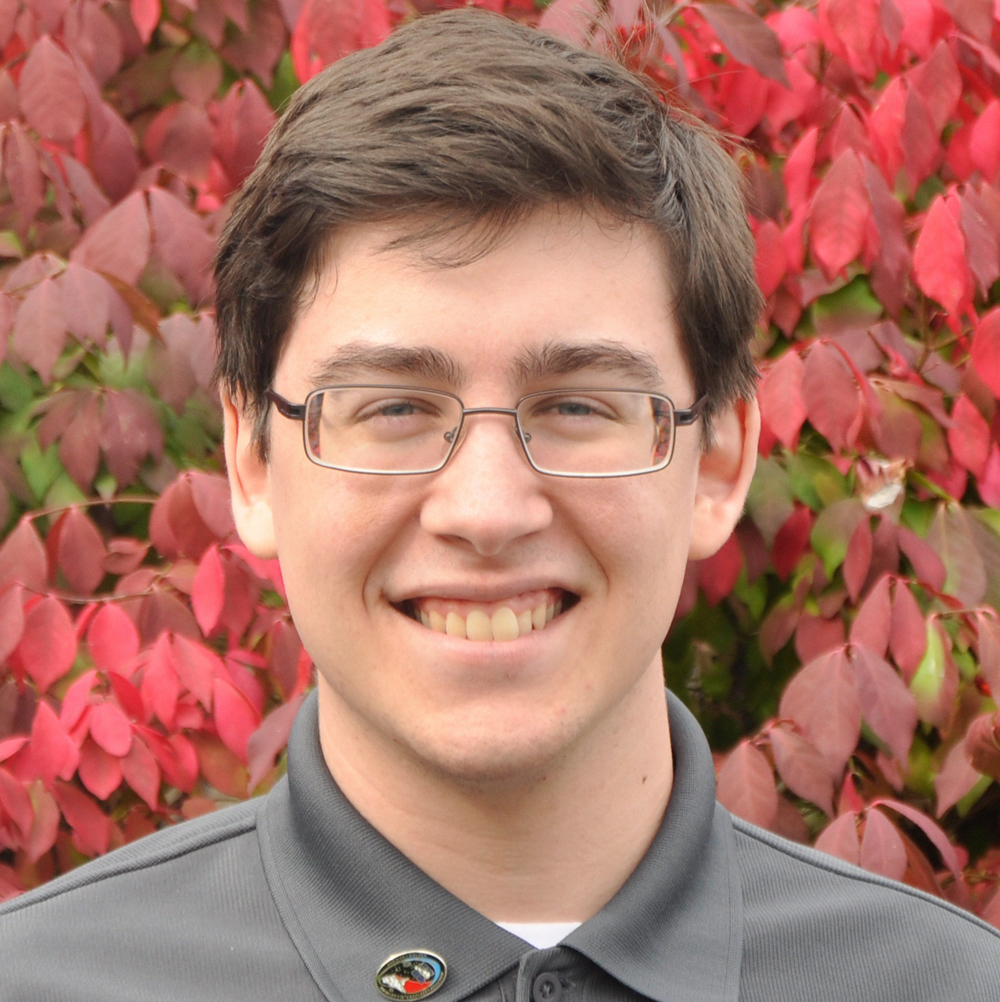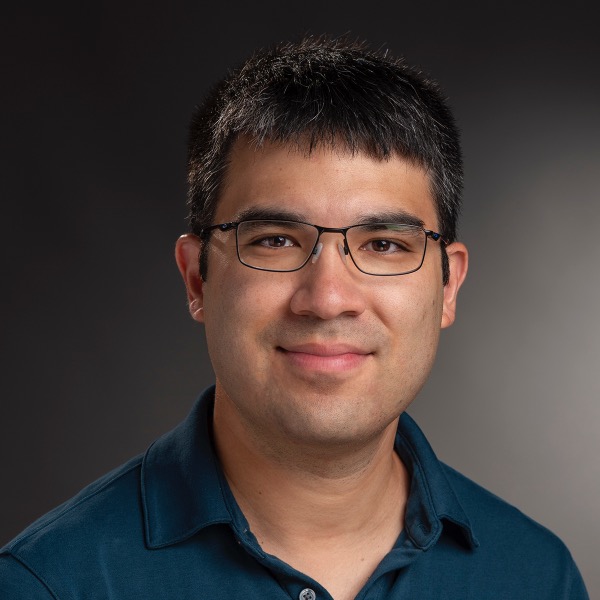People
LAMA Faculty
Professor
585-475-7179
jhkpci@rit.edu
Research Interests: Stellar Evolution, Young Stars, Planetary Nebulae
Assistant Professor
585-475-7545
mtlsps@rit.edu
Research Interests: Pulsar Timing, Interstellar Medium
Michael Richmond
Professor
Director of the RIT Observatory
585-475-2538
mwrsps@rit.edu
Andrew Robinson
Director of the Astrophysical Sciences and Technology Ph.D. Program
585-475-2726
axrsps@rit.edu
Research Interests: Active Galactic Nuclei, Interstellar Medium
Student and Postdoc Researchers

Jesse Bublitz
Ph.D. Student
Jesse's research focuses on the molecular chemistry and heating of Planetary Nebulae. Currently, he studies the chemistry and heating of planetary nebulae using Radio telescope observations to understand their dependence on high-energy radiation fields from their central stars.

Jessica Chellino
Physics B.S. Student
Jessica is trying to understand how the star formation rates of galaxies are correlated to their stellar masses. With PSF photometry and SED fitting, she is able to examine the star formation rates of galaxies undetected by the Herschel Space Observatory. She is also examining the role that environment plays in galaxy evolution and morphology.

Isabella Cox
Ph. D. Student
Isabella is currently working on coding a pipeline to reduce spectroscopic data taken by the twin Gemini telescopes. With the reduced spectroscopy, she has already measured redshifts which are considered more precise than existing photometric redshifts. She is also working on measuring star formation rates from emission line fluxes to study the star formation rate density relationship with respect to redshift.

Dorothy "Annie" Dickson-Vandervelde
Ph.D. Student
Annie's research interests lie in exoplanets and planet formation, mainly by studying the environments in which they form, protoplanetary disks. Currently she has analyzed the molecular chemistry of the disk V4046 Sgr with ALMA. She used python to analyze the radial properties of different molecules within this disk. She is currently analyzing archival ALMA data of the disk around T Cha. She has performed morphology analysis of it XO emission and will be helping create a model of the CO emission.

Ashley Frank
Ph.D. Student
Ashley's main research interest is in Active Galactic Nuclei (AGN). Her current research project involves using the technique of reverberation mapping in order to constrain the size of the dusty torus in AGN.

Muyun Liu
M.S. Student
Muyun is interested in studying stellar evolution and multi-wavelength methods in astrophysics.

Christina Magagnoli
M.S./B.S. Student
Christina's research interests involve studying galaxy mergers and the role they play in the evolution of the galaxy. Currently she is focusing on the connections between galaxy mergers and active galactic nuclei in the CANDELS fields, using visual classification data on the morphologies of galaxies as well as radio, IR, and X-ray data to search for AGN signatures. Future work involves expanding to investigate the effects of mergers on star formation rates.

Athis Osathapan
High School Intern
Athis is using images from the ALMA archive to measure the total gas masses of galaxy interactions and mergers to investigate the effect that the evolving gas fraction has had on the role that these interactions play in galaxy evolution.

Caitlin Rose
Ph.D. Student
Caitlin works on characterizing the morphologies of very high redshift galaxies in order to identify galaxy mergers, which are one of the driving forces of galaxy evolution. She is using simulated James Webb Space Telescope (JWST) images to develop a new and reliable method for identifying mergers via quantitative measurements and visual classification as a function of image depth, filter and perspective in preparation for real images from JWST. JWST is the successor to the Hubble Space Telescope (HST) and will probe higher redshifts than HST with higher resolution and quality.

Dary Ruiz-Rodriguez
Postdoctoral Research Associate

Ekta Shah
Ph.D. Student
Ekta is interested in the role of galaxy interactions and mergers in the evolution of galaxies over cosmic time. Specifically, she is conducting a statistical analysis using multi-wavelength CANDELS and COSMOS Survey data to estimate the effects of these interaction on star formation and AGN activity of galaxies over z~ 0-3. She has also worked on spectroscopic observations of galaxies obtained using the DEIMOS instrument on the Keck telescope in Hawaii to estimate the spectroscopic redshifts of potentially interacting high redshift galaxies.
Ph.D. Student
Brittany's research interests are in a multi-wavelength observational approach to understanding galaxy formation and evolution over cosmic time. Currently she is using this approach to investigate the kinematics of luminous starburst galaxies at high redshift, in an effort to determine the role of mergers in galaxy evolution. She continues to consider her previous work of the dynamic and chemical nature of circumgalactic gas as it may relate to her current analyses. She is also passionate about science outreach , to the general public and under-represented groups in the STEM fields.

Caleb Wetherell
Physics B.S. Student
Caleb is using the Voronoi Tesselation technique to create environmental density maps in the CANDELS fields and investigate the evolution of environmental trends for star formation and AGN activity.
Former Members

Triana Almeyda
AST PhD, 2017
Currently a Postdoctoral Researcher at the University of Southhampton

Kevin Cooke
AST Ph.D., 2019
Currently Postdoc at the University of Kansas
Kevin studies the formation history and evolution of the most massive galaxies in the universe, called Brightest Cluster Galaxies (BCGs). Specifically, I use the COSMOS survey data to match stellar mass and star formation models to UV, optical, and infrared observations. He also has an interest in science outreach and science policy.

Justin Gallagher
B.S./M.S. Student

Yashashree Jadahv
Ph.D., 2019
Currently Postdoc at Seoul National University
Yashashree's research interests are Active Galactic Nuclei (AGN) and galaxy evolution. She is currently working on a study to search for displaced supermassive black holes in nearby elliptical galaxies using Hubble Space Telescope (HST) archival images as a signpost of gravitational recoil.

Dale Mercado
drm4487@rit.edu
Physics B. S. Student
Dale's work focuses on analyzing galaxy spectral energy distributions in order to quantify the contribution of AGN.

Dinalva Sales
Postdoctoral Researcher 2012-13
Currently, Professor at the Federal University of Rio Grande in Brazil

Meaghann Stoelting
AST M.S., 2019
Currently Planetarium Supervisor and Director at Columbia Public Schools' Planetarium
Meaghann studies individual stellar population physical properties in very distant galaxies. Astronomers observe a morphological change when looking at galaxies near and far - there are many more elliptical galaxies in the nearby universe and many more star forming, disk-like galaxies in the distant universe. My goal is to understand why this star formation stops and galaxies change their shape. By looking at small scale properties of these star forming distant galaxies, we can look for clues as to why star formation is ongoing and has ceased.

Krystal Tyler
kdtsps@rit.edu
Postdoctoral Researcher, 2016 - 2019
Currently at Arete Associates
Krystal studies galaxy evolution in different environments. Most of her previous research focused on how the cluster environment affects a galaxy's star formation over time; currently, however, she is investigating the relations between local density, star formation rate, and AGN activity.
Other Former Members and their Current Positions
Rachel Curran (Postdoc 2010-2012)
Dan Dicken (Postdoc 2009-2011; Research Fellow at CEA de Saclay, France)
Marcus Freeman (AST PhD, 2015; Web developer at Bowst, Portsmouth, NH)
Preeti Kharb (Postdoc 2010-2012; Faculty, National Centre for Radio Astrophysics, India)
Davide Lena (AST PhD 2015; Postdoc at SRON Netherlands Institute for Space Research)
Rudy Montez (AST PhD, 2011; Smithsonian Astrophysical Observatory; Chandra X-ray Center Director's Office)
Dave Principe (AST PhD, 2014; MIT/Chandra X-ray Center)
Kristina Punzi (AST PhD, 2018; Wellesley College)
Valerie Rapson (AST PhD, 2015; Outreach Astronomer, Dudley Observatory at the Museum of Innovation & Science, Schenectady, NY)
Germano Sacco (Postdoc, 2010-2011; Arcetri Observatory)
Trent Seelig (AST MS 2018, Data Analyst at the NRAO in Socorro, NM)
Grant Tremblay (AST PhD, 2011; Smithsonian Astrophysical Observatory; Chandra X-ray Center)
Sravani Vaddi (AST PhD, 2016; Postdoc at National Centre for Radio Astrophysics, India)
Billy Vazquez (AST PhD, 2015; PeerPlace Networks)
Stuart Young (Postdoc 2008-2011)





